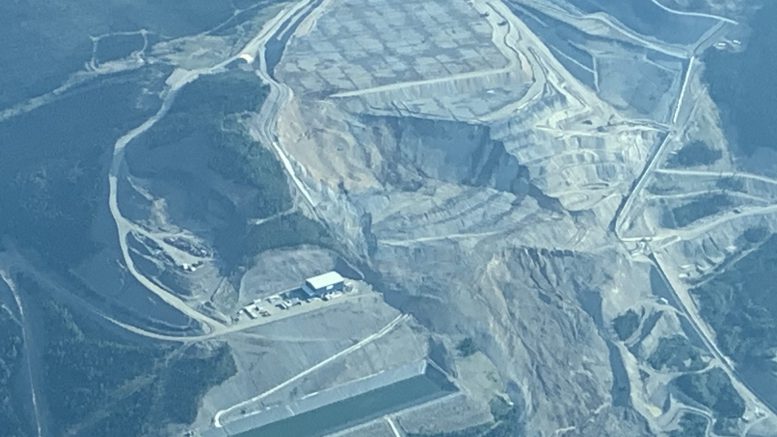The danger of cyanide contamination following the accident at Victoria Gold’s (TSXV: VGCX) Eagle mine in Yukon might be fading after the latest test results show low levels of the chemical in water bodies.
Since the accident on June 24, samples have been taken by the company and Yukon government scientists from streams and rivers near the mine site.
Testing downstream in Haggart Creek – near Eagle – from July 2 showed one trace detection of cyanide in one sample measuring 5.7 parts per billion cyanide, Victoria said on Friday, its third news release since the accident. Other samplings found no cyanide.

A Yukon government researcher gathers water samples near the Eagle mine. Credit: Yukon government
Operations were suspended at Eagle, Yukon’s only producing gold mine, after the company reported on June 24 that a failure at its heap leach pad caused an accident and spill that damaged some infrastructure. Victoria shares plunged more than 85% during the last week of June. The company’s market cap is now $57.5 million. The mine is about 375 km north of Whitehorse.
Yukon government representatives said in a media briefing on Thursday that the risk to human health from potential cyanide exposure in Haggart Creek and the McQuesten River is low.
“Last Friday, we received another test result from Haggart Creek, two kilometers downstream from the mine. No cyanide was detected in that sample,” John Streicker, Yukon’s minister of energy, mines and resources (EMR), said.

Victoria Gold released an image on Friday showing the extent of the heap leach landslide, outlined in yellow. Credit: Victoria Gold
The results suggest cyanide traces in Haggart are dissipating, after earlier results the government reported last week returned 0.04 mg of cyanide per litre. That’s expected, as cyanide breaks down quickly in the environment.
Results are pending for samples taken in Haggart and from groundwater on July 4 and 5.
Similarly, laboratory testing on fish using water samples collected on June 25 and 26 from Dublin Gulch and Haggart Creek showed no effects or mortalities, water resources scientist Tyler Williams, from the Department of Environment, said.
Legislative review
The Eagle mine accident could spur a review of regulations on heap leach operations.
“Absolutely, we’re going to need to be reviewing (them),”, Streicker said. “Right now, we’re in the process of rewriting our minerals legislation (and) working with First Nations. We should learn lessons out of this situation.”
Streicker added that the government supports an investigation into the root causes of the accident, following a call for a probe by the First Nation of Na-Cho Nyäk Dun (FNNND). The First Nation has also demanded an immediate halt to all mining activity on its traditional territory, where Eagle is located.
The minister offered few details on an investigation, saying only that it would be done in collaboration with the FNNND and that external expertise would probably be used.
Water management order
On July 4, under the authority of the Waters Act, the EMR department directed Victoria to bring in critical measures to safeguard land and water, subject to deadlines this month, Streicker said.
The company must prepare development plans for water interception lines in Dublin Gulch to manage water flow and groundwater under the slide in placer tailings, slope stability, environmental monitoring and a water treatment plan.
Victoria has complied with those deadlines of this week, except for the slope plan, for which it asked for an extension and was granted until 4 p.m. Yukon time Friday, spokesperson John Thompson said.
An independent third party is reviewing Victoria’s plan to stabilize the heap leach facility, the company said on Friday.
Under another order, given on Wednesday, the company has to immediately increase its capacity to store contaminated water to 150,000 cubic metres. The order sets a deadline of July 29.
If the company doesn’t meet those directions it could result in charges, said Sevn Bohnet, manager of major mines and operations.


Be the first to comment on "Testing shows cyanide levels near Victoria Gold’s Eagle mine are dropping"